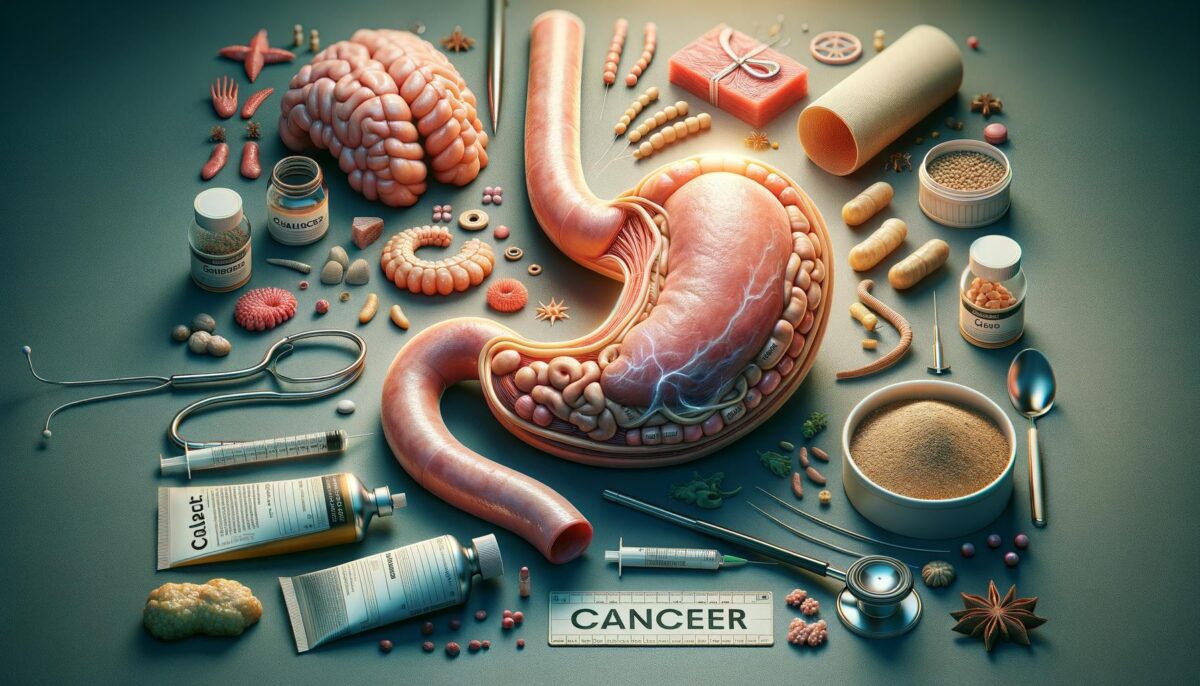Understanding Stomach Cancer
Stomach cancer, also known as gastric cancer, begins in the lining of the stomach and can develop into numerous types based on the cells involved. This disease is often asymptomatic in its early stages, making early detection challenging but essential. It’s important to have a grasp of what stomach cancer is to engage actively in discussions with your healthcare team about the most suitable treatment options for you.
Diagnosis and Staging
Accurate diagnosis and staging of stomach cancer are pivotal in crafting an effective treatment plan. Physicians employ several diagnostic tests including endoscopies, biopsies, and imaging studies to ascertain the cancer’s location, size, and spread. The staging of stomach cancer is primarily determined by the TNM system, which considers Tumor size, Node involvement, and Metastasis.
- Tumor: Describes the size and extent of the main tumor.
- Node: Refers to whether cancer is present in the lymph nodes.
- Metastasis: Indicates whether cancer has spread to other parts of the body.
A thorough understanding of the cancer’s stage helps doctors recommend tailored treatment options and set realistic expectations.
Treatment Modalities
Treatment for stomach cancer varies significantly based on the cancer stage, patient health, and personal preferences. Common treatments include surgery, chemotherapy, radiation therapy, targeted therapy, and immunotherapy. Surgical options might involve partial or total gastrectomy, which is the removal of part or all of the stomach, whereas chemotherapy uses drugs to kill cancer cells, often employed before and after surgery. Radiation therapy might be used to reduce the tumor size or alleviate symptoms. Targeted therapies use drugs that target specific aspects of cancer cells, while immunotherapy boosts the body’s natural defenses to fight the disease. Each treatment has its own set of potential side effects and benefits that are important to consider.
Lifestyle and Support
Complementary to medical treatment, lifestyle adjustments and holistic support are crucial for those undergoing treatment for stomach cancer. Maintaining a balanced diet, engaging in light physical activity, and getting adequate rest can significantly influence treatment outcomes and enhance quality of life. Emotional and psychological support, through counseling or support groups, can help patients navigate the complexities of their experience, reduce stress, and manage anxiety. It’s beneficial for patients to establish a supportive network of friends, family, and healthcare professionals to ensure comprehensive support throughout the treatment journey.
Choosing the Right Treatment Path
Selecting the appropriate treatment plan involves analyzing various factors such as the stage of the stomach cancer, the patient’s overall health, and personal treatment goals. Engaging in discussions with oncologists and healthcare providers is essential to explore the benefits and drawbacks of available treatment options. Patients are encouraged to seek second opinions, research extensively, and consent to treatments that align closely with their personal values and lifestyle.
Conclusion
Being diagnosed with stomach cancer is a life-altering event, but understanding the available treatment options and making informed decisions can empower patients and their families. By keeping informed, prioritizing self-care, and seeking support, individuals facing stomach cancer can navigate their treatment journey with greater confidence and resilience.
